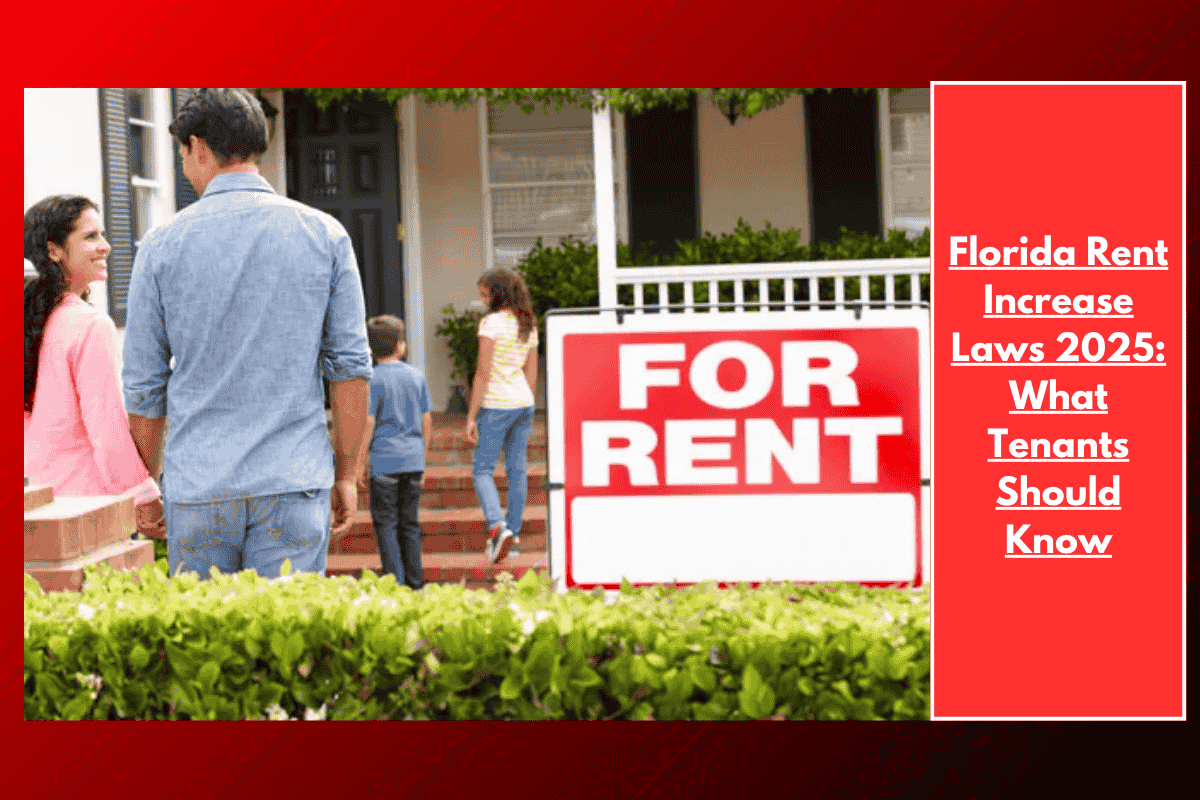Rent increases are a common concern for tenants across the country, and Florida is no exception. As rental prices rise in many areas, it’s important for tenants to understand their rights and what the law says about rent increases in 2025. Whether you’re a current renter or planning to move to Florida, this guide will help you navigate the state’s rent increase laws and ensure that you are aware of your rights.
Florida Rent Increase Laws: An Overview
In Florida, there are no statewide rent control laws, which means landlords have the freedom to increase rent as they see fit. However, there are rules and guidelines about how often and by how much rent can be raised, depending on the type of lease agreement and the local county or city laws. It’s essential to understand these laws to avoid surprises when your landlord decides to increase your rent.
1. How Much Can Rent Be Increased in Florida?
While there is no cap on the amount a landlord can increase the rent, they must follow specific rules about notice periods and the timing of the increase:
Fixed-Term Lease Agreements: If you have a lease with a set term (for example, a one-year lease), the rent cannot be increased during the lease term unless specified in the lease agreement. In this case, your landlord cannot raise the rent until the lease is up for renewal. However, they can include provisions in the lease that allow them to raise the rent at certain intervals or after a specified period.
Month-to-Month Leases: If you’re on a month-to-month rental agreement, your landlord is allowed to increase the rent, but they must provide a certain amount of notice before doing so. In Florida, the law requires that a landlord give at least 15 days’ written notice before increasing the rent for a month-to-month lease. This notice must be provided before the next rent payment is due.
2. Notice Requirements for Rent Increases
The notice period for rent increases depends on the type of lease agreement:
Fixed-Term Lease: No rent increase is allowed during the term unless the lease specifically allows it. If the lease allows for rent increases, the landlord must follow the terms outlined in the lease regarding timing and notice.
Month-to-Month Lease: For month-to-month tenants, Florida law requires a 15-day notice before the rent increase takes effect. This means the landlord must inform you at least 15 days before the rent is due for the next month. If you don’t agree with the rent increase, you may choose to leave, but you must follow the notice period required in the lease.
30-Day Notice in Some Counties: Some cities or counties in Florida may have local ordinances that require a longer notice period for rent increases, typically 30 days. If you live in a larger city like Miami, Orlando, or Tampa, it’s a good idea to check with your local housing authority to see if there are any additional rules in place.
3. Can a Landlord Increase Rent After a Natural Disaster?
In Florida, rent increases following a natural disaster, such as a hurricane, are not specifically prohibited. However, there are some protections in place for tenants during periods of emergency, such as eviction moratoriums that may temporarily prevent rent increases. In the aftermath of a disaster, local governments may also place temporary rent freeze measures, but these are typically short-term and tied to a state of emergency.
It’s important to stay updated on any local regulations following a natural disaster, as temporary relief measures may be enacted to protect tenants from drastic rent hikes during such times.
4. Rent Increases and Fair Housing Laws
While Florida allows rent increases without specific caps, landlords must still comply with Fair Housing Laws. This means that rent increases cannot be discriminatory or retaliatory. For example, landlords cannot increase rent based on race, ethnicity, gender, disability, or any other protected class under federal and state law.
Additionally, tenants are protected from retaliation if they have filed a complaint or asserted their rights. For example, if a tenant complains about unsafe living conditions or reports violations of building codes, the landlord cannot retaliate by raising the rent or threatening eviction.
5. Negotiating Rent Increases
While the law gives landlords the right to raise rent within certain guidelines, tenants still have options for negotiating. If your landlord proposes a rent increase that you feel is too high, consider these strategies:
Discuss the Increase: Sometimes, simply having a conversation with your landlord about the rent increase can lead to a compromise. If you have been a reliable tenant, they may be willing to negotiate.
Propose a Smaller Increase: If you cannot afford the proposed increase, consider suggesting a smaller rent increase that would be more manageable for your budget.
Sign a Longer Lease: Offering to sign a longer-term lease in exchange for a smaller rent increase can be a win-win for both parties. Landlords appreciate stability, and tenants can lock in a lower rate for a longer period.
6. What Happens If I Don’t Agree to the Rent Increase?
If you don’t agree with the rent increase, you have a few options:
Leave the Rental: If you are on a month-to-month lease and the rent increase is too high for you to afford, you can choose to move out. However, you must provide the required notice according to your lease terms (typically 15 days for month-to-month tenants).
Negotiate: As mentioned earlier, negotiating with your landlord might be a viable option if you feel the increase is unfair. Open communication could help you reach a reasonable solution.
File a Complaint: If you believe that the rent increase is discriminatory or retaliatory, you can file a complaint with the Florida Commission on Human Relations or consult with a legal professional.
In 2025, Florida tenants should be aware that rent increases are generally allowed without caps, but there are guidelines in place to protect renters. If you’re on a month-to-month lease, your landlord must provide at least a 15-day notice before increasing rent. Fixed-term lease agreements typically do not allow rent increases until the lease is up, unless otherwise stated in the lease.
If you’re facing a rent increase, remember that you have options to negotiate or even contest the increase if you believe it is unfair. Understanding the law and your rights will help you navigate the rental market in Florida, giving you peace of mind as a tenant.
SOURCE
[1] https://www.doorloop.com/laws/florida-rent-control-laws
[2] https://rentpost.com/resources/article/raise-rent-laws-in-florida/
[3] https://www.amgrents.com/kissimmee-property-management-blog/rent-increase-laws-in-florida-that-landlords-need-to-be-aware-of
[4] https://www.hemlane.com/resources/florida-rent-control-laws/
[5] https://www.steadily.com/blog/rent-increase-laws-regulations-florida














